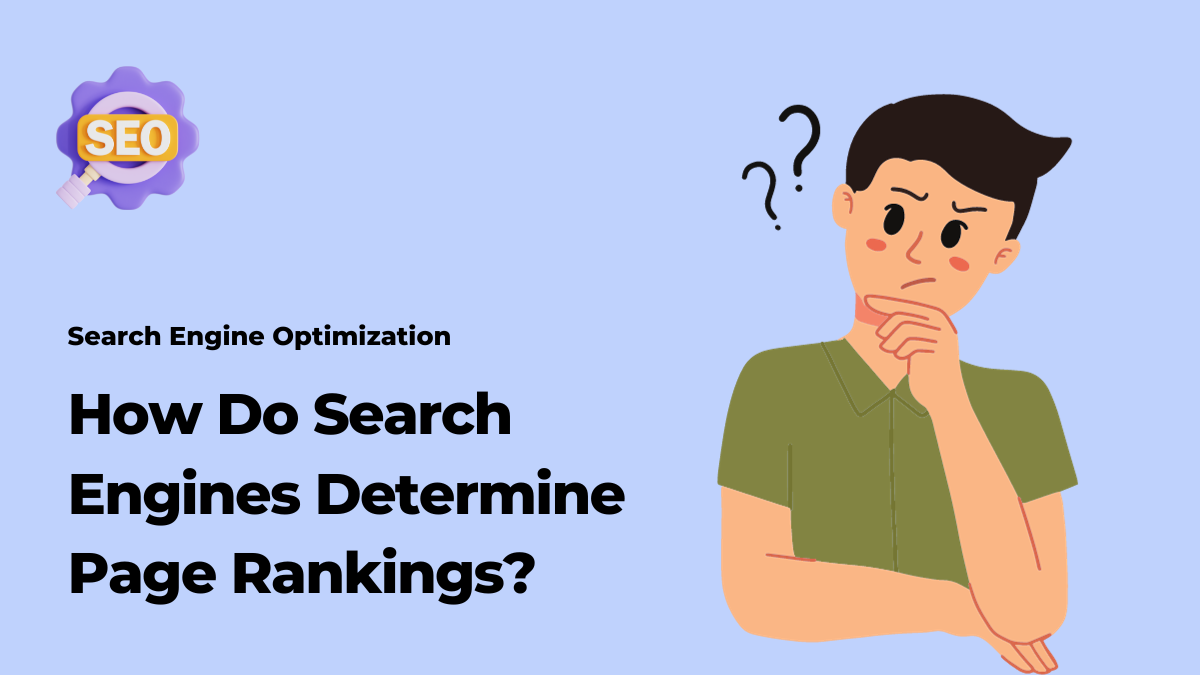Hello there! If you’ve ever wondered how search engines like Google decide which websites appear at the top of their search results, you’re not alone. It’s a fascinating topic that I’d love to delve into with you. In this blog post, we’ll explore the world of search engine rankings and discover the key factors that influence where a webpage lands on those coveted search results pages.
Table of Contents
1. Keywords are the Starting Point
Search engines, such as Google, use complex algorithms to sift through the vast ocean of web pages on the internet. But it all begins with keywords. Keywords are the words and phrases people type into the search bar when looking for information. Search engines crawl the web and match these keywords to the content of webpages.
So, the first step in determining page rankings is making sure your webpage contains relevant keywords. Think about what your target audience might search for when seeking information related to your content. Incorporate those keywords naturally into your webpage’s content, headings, and meta tags.
2. Quality Content is King
Once your webpage has the right keywords, the next crucial factor is the quality of your content. Search engines aim to deliver the best possible results to users, so they favor webpages with informative, well-written content that answers users’ questions or solves their problems.
To improve your page ranking, focus on creating high-quality content that’s unique, comprehensive, and engaging. Regularly update your content to stay relevant in your niche and to show search engines that you’re active and authoritative.
3. Backlinks and Authority
Search engines consider the credibility and authority of a webpage. One way they assess this is through backlinks. Backlinks are links from other websites pointing to your content. The more high-quality websites that link to your page, the more authoritative it appears to search engines.
Building backlinks takes time and effort. You can do this by guest posting on reputable websites, collaborating with others in your field, and creating shareable content that naturally attracts links.
4. Page Loading Speed Matters
Have you ever clicked on a search result only to be greeted by a slow-loading page? It’s frustrating, right? Search engines understand this and take page loading speed into account when ranking pages.
Optimize your website’s performance by compressing images, using efficient coding practices, and investing in a reliable hosting service. A fast-loading page not only pleases search engines but also improves the user experience.
5. Mobile-Friendly Design is Essential
With the increasing use of mobile devices, search engines prioritize mobile-friendly websites. Your webpage should look and function well on smartphones and tablets. Ensure responsive design and make sure buttons and links are easily clickable on smaller screens.
6. User Experience and Engagement
Search engines track user behavior to determine the quality of a webpage. They consider factors like the time users spend on your site, the bounce rate (the percentage of visitors who leave after viewing only one page), and the click-through rate (how often people click on your search result).
To improve user experience, make sure your website is easy to navigate, with clear headings and organized content. Encourage engagement through interactive elements like comments, social sharing buttons, and multimedia.
7. Regular Updates and Fresh Content
Search engines like fresh, up-to-date content. Regularly publishing new articles, blog posts, or updates can help improve your page’s ranking. It shows search engines that your website is active and relevant.
In conclusion, search engine rankings are determined by a combination of factors, including keywords, quality content, backlinks, loading speed, mobile-friendliness, user experience, and fresh updates. By focusing on these elements, you can improve your webpage’s chances of reaching the top of search engine results and getting the attention it deserves. Remember, it’s a journey, not a sprint, so stay patient and keep optimizing your website for the best results. Happy ranking!
